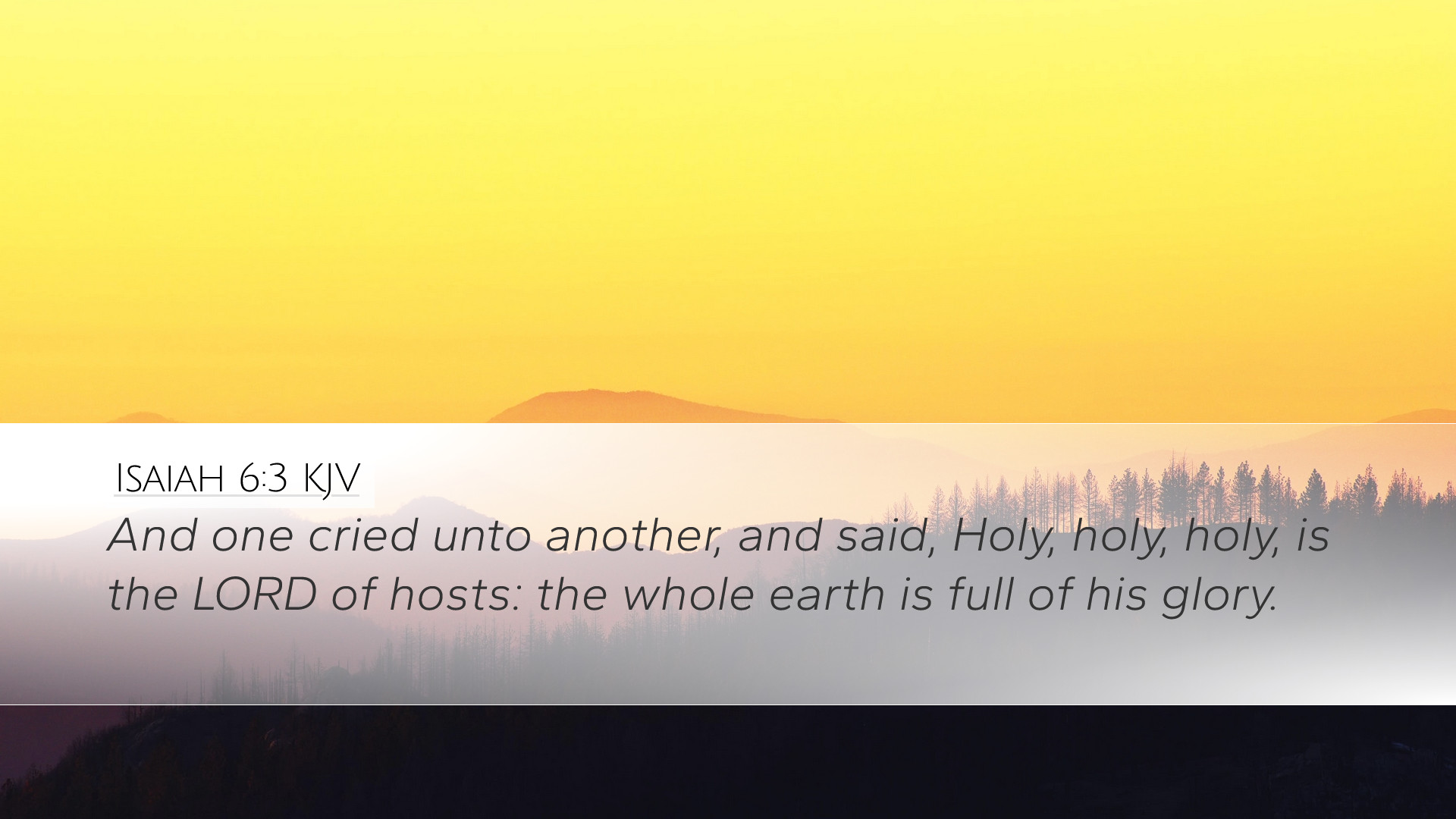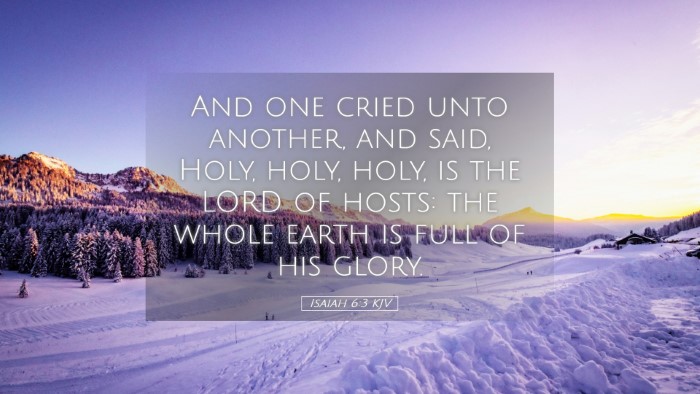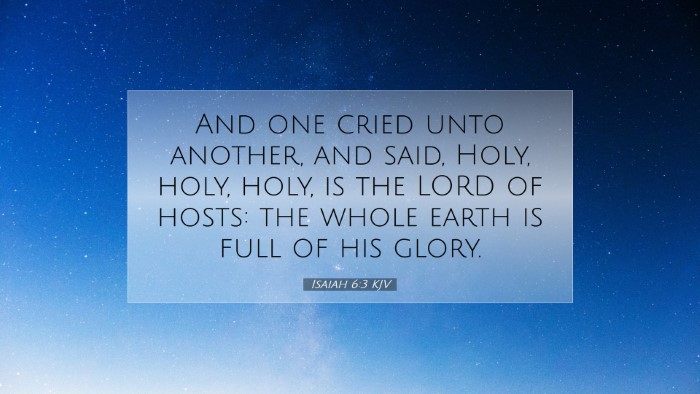Isaiah 6:3 Commentary
Isaiah 6:3 states:
"And one cried unto another, and said, Holy, Holy, Holy, is the Lord of hosts: the whole earth is full of his glory."
Introduction
This verse is a profound proclamation of the holiness of God, and it marks a pivotal moment in Isaiah's prophetic calling. It is essential for pastors, students, theologians, and Bible scholars to explore this text deeply, as it provides insights into God's nature, the response of the heavenly beings, and the implications for worship and service.
Contextual Background
The sixth chapter of Isaiah opens with a vision of the Lord in His glorious temple, highlighting the prophet’s call. In this divine encounter, Isaiah witnesses the seraphim—heavenly beings—who surround the throne of God. The repetition of "Holy" in this verse emphasizes the absolute holiness of God, setting the tone for the entire chapter and for Isaiah's ministry.
The Holiness of God
Matthew Henry emphasizes that God’s holiness is not simply an attribute but the essence of His character. The repeated designation "Holy, Holy, Holy" signifies perfection and completeness, indicating that God is transcendent and utterly distinct from His creation.
Albert Barnes elaborates that the phrase also reflects the triune nature of God, interpreted by Christians as a shadow of the Trinity. The acknowledgment of God’s holiness suggests that He is above and beyond humanity and is to be approached with reverence and awe.
Adam Clarke highlights the implications of God's holiness. It serves as a reminder of humanity’s sinfulness and inadequacy. The seraphim's proclamation is not just a divine accolade but a call to recognize the gap between God’s purity and human imperfection. Clarke notes that this realization should lead believers to repent and seek holiness in their own lives.
The Glory of the Lord
The second part of the verse, "the whole earth is full of his glory," speaks to the omnipresence and sovereignty of God.
- Matthew Henry observes that God’s glory is revealed in the creation, emphasizing His majesty as it permeates all aspects of life and nature.
- Albert Barnes draws attention to how the glory of God manifests in both the visible order of the universe and the invisible workings of His providence, pointing to His divine presence in all activities around the globe.
- Adam Clarke adds that this glory is not just a distant, ethereal concept, but something tangible that believers experience in their lives through His grace, guidance, and revelation.
The Response to God’s Holiness
The response of the seraphim is a model for worship and reverence. Their declaration of God’s holiness evokes both admiration and fear.
- Matthew Henry points out that true worship should be characterized by a profound recognition of God's greatness, leading to humility and submission among believers.
- Albert Barnes remarks that this calls into question how often worship is diluted by trivial distractions, emphasizing the need for thorough reverence when approaching God.
- Adam Clarke insists that understanding God’s holiness will ultimately transform our worship, moving it from mere ritual to a sincere heartfelt encounter with God.
The Theological Implications
The proclamation of God’s holiness carries profound theological implications:
- God’s Otherness: His holiness establishes Him as entirely other than His creation, prompting believers to acknowledge their dependency on His grace.
- Call to Holiness: As God's people who have been called into relationship with Him, there is a divine mandate for them to reflect His holiness in their lives.
- Worship as Response: Genuine worship flows from an understanding of who God is—holy and glorious—and leads to a response that honors Him.
Practical Applications
For pastors, students, and theologians, Isaiah 6:3 serves as a catalyst for practical applications in ministry and personal life. It encourages a holistic approach to understanding God's character, worship, and ministry:
- Deepen Understanding: Engage in the study of God's holiness through prayer and scripture to deepen personal understanding and reverence.
- Transform Worship: Create worship experiences that reflect God’s holiness; focus on authenticity and acknowledgment of God’s greatness.
- Live a Holy Life: Strive to live according to God's standards, recognizing that holiness in character and conduct is rooted in an encounter with God.
Conclusion
Isaiah 6:3 is more than a declaration of divine attributes; it is an invitation for humanity to understand, engage with, and respond to the holiness of God. By appreciating the insights from Matthew Henry, Albert Barnes, and Adam Clarke, one can grasp the depth of this verse and its application in one’s life and ministry. As we meditate on the holiness of God, may it inspire a greater sense of reverence, worship, and commitment to live out His glory in the world.


